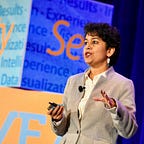Leverage Data Science in Fintech or Die
How to Leverage Data Science in Fintech for Maximum Impact
Data science has been a game-changer in the financial industry, and fintech is one of the sectors that has successfully leveraged its power to create innovative solutions for consumers. Fintech companies use data science to enhance their products, improve marketing strategies, streamline operations, and manage risk.
In this article, we will explore the various applications of data science in fintech and how your company can harness this potential for maximum impact.
Credit Scoring through Advanced Data Analysis
One of the earliest and most widely adopted data science applications in fintech is credit scoring. Traditionally, banks relied on limited data sets, such as credit history and income, to evaluate an individual’s creditworthiness. However, data science has allowed fintech companies to analyze a broader range of data points, leading to more accurate credit scoring models.
Fintech companies now use a variety of data sources to evaluate an individual’s creditworthiness, including social media activity, online purchasing behavior, and even smartphone usage patterns. By analyzing this vast amount of data, fintech companies can identify patterns and trends that traditional banks may overlook, allowing them to create a more comprehensive credit scoring model. To read more about the top applications of data science in fintech, click here.
Machine Learning for Fraud Detection
Fraud is a persistent and costly problem in the financial industry, and traditional rule-based systems cannot keep up with the growing sophistication of fraudsters. By adopting machine learning, fintech companies can identify patterns and anomalies that may indicate fraudulent activity.
Analyzing vast amounts of data, such as transaction history, user behavior, and geographic location, has proven beneficial in detecting online transaction fraud.
The early adoption of machine learning for fraud detection has been a significant success story in fintech, enabling companies to stay ahead of the curve in the battle against fraud and protect their customers’ assets.
Prioritizing Data Privacy and Security
The vast amount of data fintech companies collect contains sensitive financial and personal information, making it a prime target for cybercriminals. To address this issue, fintech companies are increasingly investing in data privacy and security measures, including robust encryption protocols, secure data storage, and multi-factor authentication.
Fintech companies are also working to improve transparency around their data collection and usage practices, providing clear explanations of how data is collected and used and offering individuals greater control over their data through opt-out options.
The rising importance of data privacy and security has been partly driven by regulatory changes, such as the General Data Protection Regulation (GDPR) in Europe and the California Consumer Privacy Act (CCPA) in the United States.
By investing in robust security measures and enhancing data collection and usage transparency, fintech companies can build trust with their customers and protect their sensitive information.
Conclusion
Data science is poised to have an even more significant impact on the future of fintech.
AI and machine learning advancements will continue to drive innovation in personalized products and services, targeted marketing campaigns, and streamlined operations.
Adopting blockchain technology will also transform the financial industry, creating new opportunities for fintech companies to innovate and disrupt traditional banking.
Maximize the impact of data science in your fintech company by partnering with Aryng, a data science consulting firm that can help you harness data science's power for maximum success. Visit Aryng’s Startup page or contact Aryng for data science solutions tailored to your needs.
